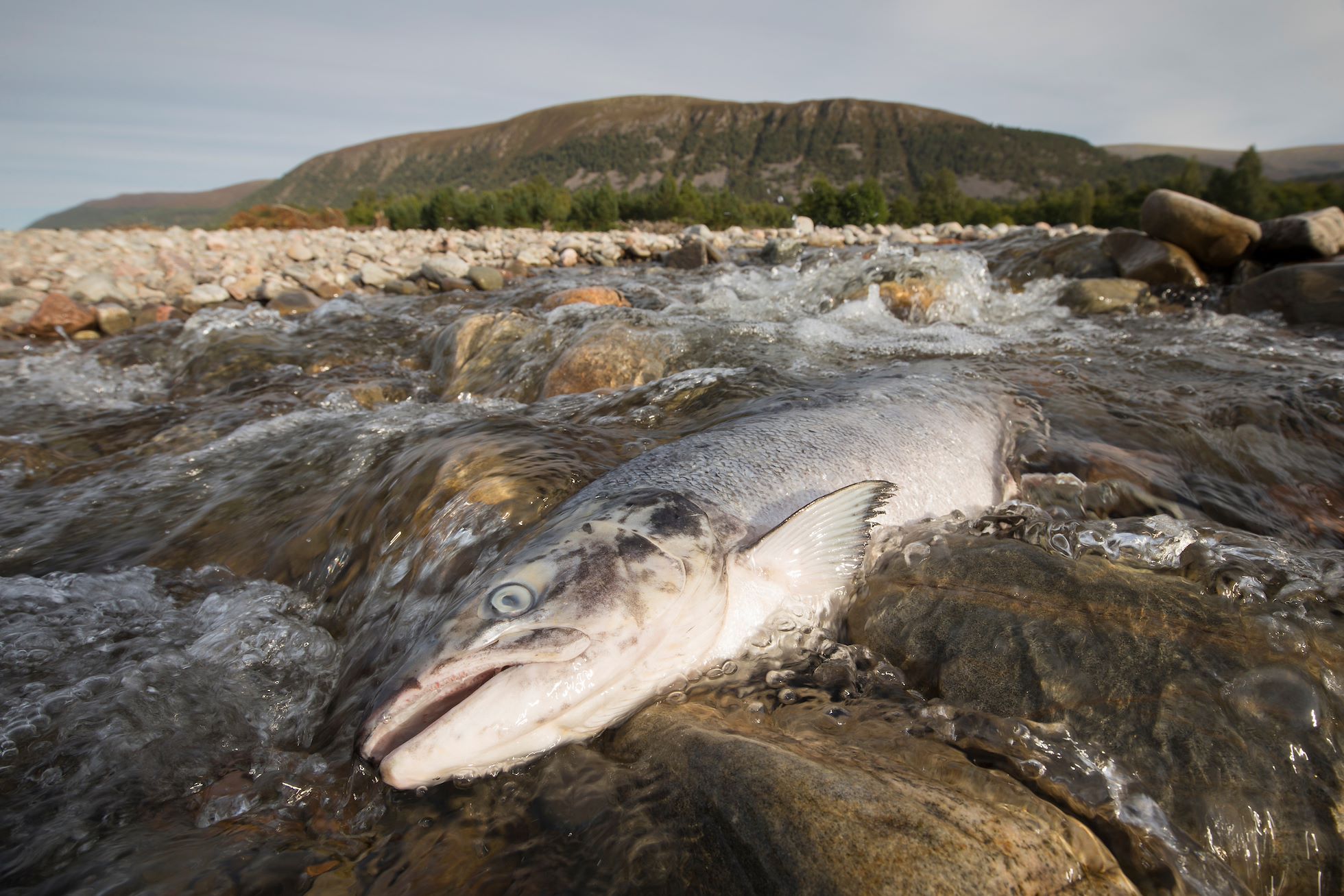River restoration "key" to saving Scotland's disappearing salmon
The Scottish Government’s Provisional Catch Statistics, released today, have revealed that 2023 yielded the lowest catch for wild Scottish salmon on record, with a devastating 25% drop since just last year.

The Scottish Government’s Provisional Catch Statistics, released today, have revealed that 2023 yielded the lowest catch for wild Scottish salmon on record, with a devastating 25% drop since just last year. These figures have added fresh urgency to efforts by landowners, farmers and fisheries managers to restore Scotland’s degraded river catchments and lost river woodlands, in a last-ditch attempt to return these habitats to the healthy state that salmon require.
Such restoration work is the focus of the Riverwoods initiative, which recently launched a new awareness campaign, featuring a range of freely available films and stories, to showcase how ecological restoration can help Scotland’s rivers to teem with life once more. “We hope landowners, foresters and farmers will look at these films and real-life case studies and feel inspired to get in touch to discuss what can be done on the land they manage,” said Luke Comins of the Tweed Forum.
“Returning our rivers to a healthy condition is key if we want to save our salmon,” said Mike Thornton, Riverwoods Project Manager. “That means we need policymakers to do much more, but we also need individuals to do what they can to aid the expansion of river woodlands, restore degraded peatlands, and reconnect waterways with their natural flood plains.”
Dr Alan Wells, CEO of Fisheries Management Scotland, said, “These new statistics provide more evidence of the perilous state of Scotland’s precious migratory fish populations. We are working with our members and partners in the Riverwoods initiative and the Missing Salmon Alliance to restore the freshwater environment and enhance resilience in the face of climate change. To support these efforts, the Scottish Government and agencies must do more to address the numerous pressures that we can control.”
River restoration helps salmon during two crucial periods of their lives – providing cold, clean water for young fish, which can then develop in rivers richly supplied with food and shelter, while also securing healthy habitat for adults to spawn and reproduce. “We need to ensure we have as many healthy wild smolts going out to sea as we can,” said Richard Gledson, who has been overseeing work to restore natural river processes on the Balmoral Estate.
“Salmon numbers reflect the state of our rivers, and river health is largely determined by the management of the surrounding land, so we need to think about the health of whole river catchments if we want to save our last salmon,” said Peter Cairns, Executive Director of SCOTLAND: The Big Picture, responsible for the Creating Riverwoods collection of films and stories, which showcase the practical steps needed to restore catchment health.
The Riverwoods initiative, led by the Scottish Wildlife Trust, is supported by a wide partnership of charities, organisations and government agencies, working collaboratively towards ecosystem recovery through the restoration and creation of river woodlands. Riverwoods partners hope that the Scottish Government will make river restoration and salmon conservation a much higher priority as part of their, soon to be legally binding, commitments on biodiversity. As well as helping salmon and boosting biodiversity, the benefits of restoring river woodlands and establishing healthier river catchments include cleaner water, increased carbon storage, reduced flood risk, healthier soils, and improved health and wellbeing for people.
Scotland’s river woodlands continue to face threats from over-grazing, pollution, and the introduction of invasive exotic species. However, the alarming catch data released today underline the recent IUCN assessment of wild Atlantic salmon in much of Great Britain as endangered, marking a new nadir in the crisis facing the species. The Riverwoods initiative is therefore encouraging every landowner and land manager to do what they can now, to help restore Scotland’s degraded rivers and save our endangered salmon before it’s too late.
Further information: https://www.riverwoods.org.uk/showcase/ and https://www.scotlandbigpicture.com/riverwoods#creating-riverwoods
ENDS

